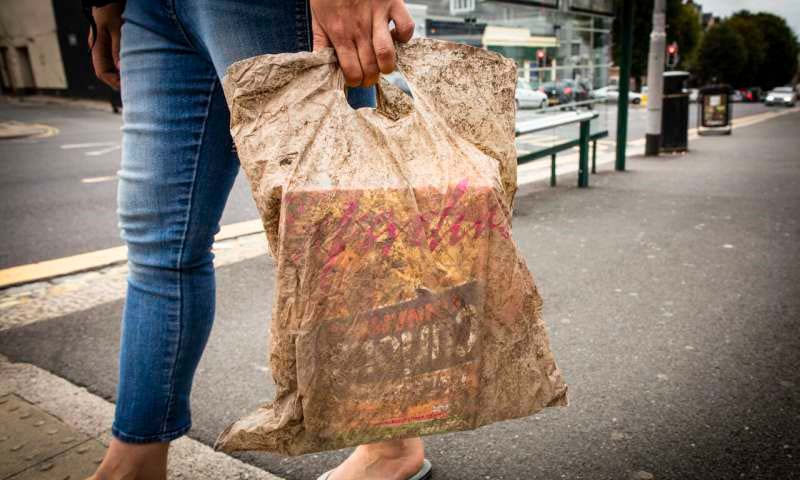In recent years, concerns about the environment have led many companies to promote products promising biodegradability in an attempt to meet consumer demand for more sustainable solutions. However, this trend has led to an increase in the number of misleading environmental claims, known as greenwashing.

In the United States, the Federal Trade Commission (FTC) has stepped up its efforts to combat these practices, enforcing strict regulations to ensure that products that claim to be biodegradable actually are. In this post, we’ll explore how the FTC is addressing this issue and the impact it has on businesses and consumers.
What is Biodegradability and Why is it Important?
Biodegradability refers to the ability of a material to be broken down by living organisms, such as bacteria and fungi, into natural, environmentally harmless substances. This concept is crucial when it comes to plastics and other products that, when discarded, can take hundreds of years to decompose, causing significant damage to ecosystems and wildlife.
To be considered truly biodegradable, a plastic must decompose within a reasonable time under normal composting conditions and leave no harmful residues. However, the biodegradability of plastics is not always clear, and many companies have been accused of making false or misleading claims about the biodegradability of their products.
FTC Action Against Misleading Claims
The American Trade Federation (FTC) plays a crucial role in protecting consumers from misleading environmental claims. The FTC is the agency responsible for regulating and overseeing business practices in the United States, including the veracity of product claims. Recently, the FTC has focused its attention on companies that promote products as biodegradable without scientific evidence.
FTC Director Jessica Rico stated, “It’s no secret that consumers want environmentally friendly products, and that companies are trying to meet that need. But companies that lack evidence to support the environmental claims they make about their products erode consumer trust and undermine companies that are playing by the rules.” This statement reflects the FTC’s concern to ensure that biodegradability claims are based on reliable scientific evidence.
FTC Rules and Regulations on Biodegradability
The FTC has strict rules governing the use of terms such as “biodegradable” and “environmentally friendly” on product labels. In order for a product to carry such labels, it must meet specific criteria set forth by the FTC. These rules include:
- Competent Scientific Base: Biodegradability claims must be supported by reliable and representative scientific data. This means that companies must provide clear evidence that the product decomposes within a reasonable time frame without leaving harmful residues.
- Transparency in Claims: Companies are required to be transparent about the conditions required for a product to become biodegradable. For example, if a plastic only decomposes under specific industrial composting conditions, this must be clearly stated.
- Review of Communication Standards: The FTC is constantly reviewing its rules governing environmental communications to prevent consumers from being misled. This includes updating guidelines on the use of terms related to sustainability and biodegradability.
Impact of Misleading Claims on the Environment and Consumers
False biodegradability claims not only mislead consumers, but can also have significant negative impacts on the environment. When products claiming to be biodegradable do not decompose as promised, they continue to contribute to pollution and waste accumulation. Furthermore, these misleading claims harm companies that are actually investing in sustainable, truly biodegradable solutions, undermining public trust in eco-friendly solutions.
Consumers, in turn, are led to believe that they are making more responsible choices when, in reality, their efforts to support environmentally friendly products may be in vain. Therefore, the FTC’s action is crucial to ensuring that claims about biodegradability are accurate and based on real evidence.
Comparison with Approaches in Brazil
While the FTC takes a strict approach to regulating biodegradability claims in the US, the approach in Brazil may differ. In Brazil, regulation of biodegradable products is also important, but enforcement and enforcement of the rules may vary.
In Brazil, the National Health Surveillance Agency (ANVISA) and the Brazilian Institute of the Environment and Renewable Natural Resources (IBAMA) play important roles in environmental regulation and may approach biodegradability claims in ways that differ from American practices.
For detailed information on FTC rules and comparisons with Brazilian regulations, it is useful to consult the official FTC website and other resources specialized in environmental regulations.
Regulating biodegradability claims is a crucial aspect of environmental protection and consumer confidence. The American Trade Federation (FTC) plays a vital role in ensuring that products marketed as biodegradable actually meet rigorous standards and are backed by scientific evidence.
The FTC’s action against misleading claims helps promote more transparent business practices and protect the environment from products that don’t deliver on their promises. With greater awareness and effective regulation, we can move toward a more sustainable and responsible future.
Check out other interesting facts about recycling clicking here.
Learn how to make art by recycling, Click here.



